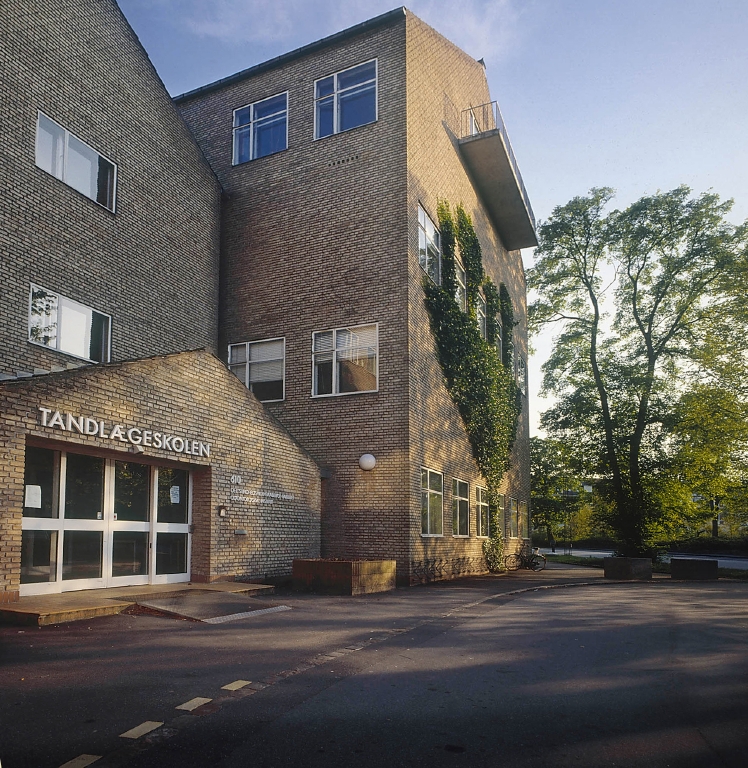The vision process for the dental degree programmes starts now
At the beginning of October, around seventy stakeholders will gather at a workshop at the Sandbjerg Estate to begin the process of creating a vision and a strategic basis for the dental degree programmes at the Department of Dentistry and Oral Health. The goal is to future-proof the degree programmes through innovative thinking.

All of Health’s degree programmes will begin work on a major development process to ensure that the they match the reality that graduates will come to face in the coming years. The medical degree programme began the vision process in the spring and it is now the turn of the dental degree programmes at the Department of Dentistry and Oral Health to future-proof their programmes through a comprehensive vision and strategy process.
The dental degree programmes are vocational and are directed towards the professions of dental surgery assistant, clinical dental technician, dental hygienist, dentist and laboratory dental technician. The clinical training therefore forms a large part of the educations. But according to Vice-dean for Education Charlotte Ringsted, the degree programmes must not only provide the dental degree graduates with the requisite here-and-now competences to enter the labour market and begin working in clinics:
"Graduates from the dental degree programmes must naturally enough have the core competences in place, but they must also be able to contribute to the continued development of the field and to healthcare technologies and the entire sector. We must be at the forefront of society's needs in dental and oral health and be geared for a future we do not know. This is why we are starting the whole vision and strategy process."
Starting with core expertise
The development work is being initiated with a workshop at the Sandbjerg Estate on 4-5 October this year. Approximately seventy stakeholders are invited, and the participants represent employers and professional organisations as well as directors of studies, lecturers, researchers and students from the faculty. Future perspectives are in focus and the goal is to get input to how the Department of Dentistry and Oral Health can best educate graduates to meet future needs in the area of dental and oral health.
"The first round is not so much about the programmes and their structural framework. We start on a more general level with the core expertise and the future needs of society. This is the whole mindset that needs to permeate the way in which we organise courses and teaching and bring our students into play in the development of their own academic competences," says Charlotte Ringsted.
The workshop will provide the basis for forming a vision and a strategic basis for the degree programmes, which will be sent for a wide-ranging consultation. The two boards of studies at the department will then consider the vision and the strategic basis and assess whether there is a need to adapt the degree programmes and the academic regulations. The development work is headed by a steering committee and assisted by an advisory group tasked with ensuring ongoing sparring during the entire process.
Unique opportunity for rethinking
The vision and strategy process at the Department of Dentistry and Oral Health will stretch over several years. According to department head at the Department of Dentistry and Oral Health Siri Beier Jensen, the timing is good:
"We gathered all the dental degree programmes under one department a year ago. This gives us a unique opportunity for rethinking the dental degree programmes and jointly developing a vision for how we will sharpen the different professions in the future and how we can create synergies within the dental team."
In addition to the five basic educations, the vision and strategy process also encompasses the perspective of possible advanced-level programmes. These include PhD programmes, specialist programmes in e.g. orthodontics and in dental, oral and maxillofacial surgery for dentists, the diploma degree programme in oral healthcare for dental hygienists and the academy programme in odontological practice for dental surgery assistants.
"In this way we incorporate career paths and continuous training in our thinking, which in future will be very important for the profession because society’s development in general is happening so fast," says Siri Beier Jensen and emphasises: "We will be involved in influencing the dental degree programmes in the future, and we can do this as we are one of the few places in the world where all the educational programmes for dental and oral and health and disease are gathered together under the same roof and care able to work together to formulate a vision for the future."
Contact
Vice-dean for Education Charlotte Ringsted
Aarhus University, Health
Mobile: (+45) 9350 8222
Email: charlotte.ringsted@au.dk